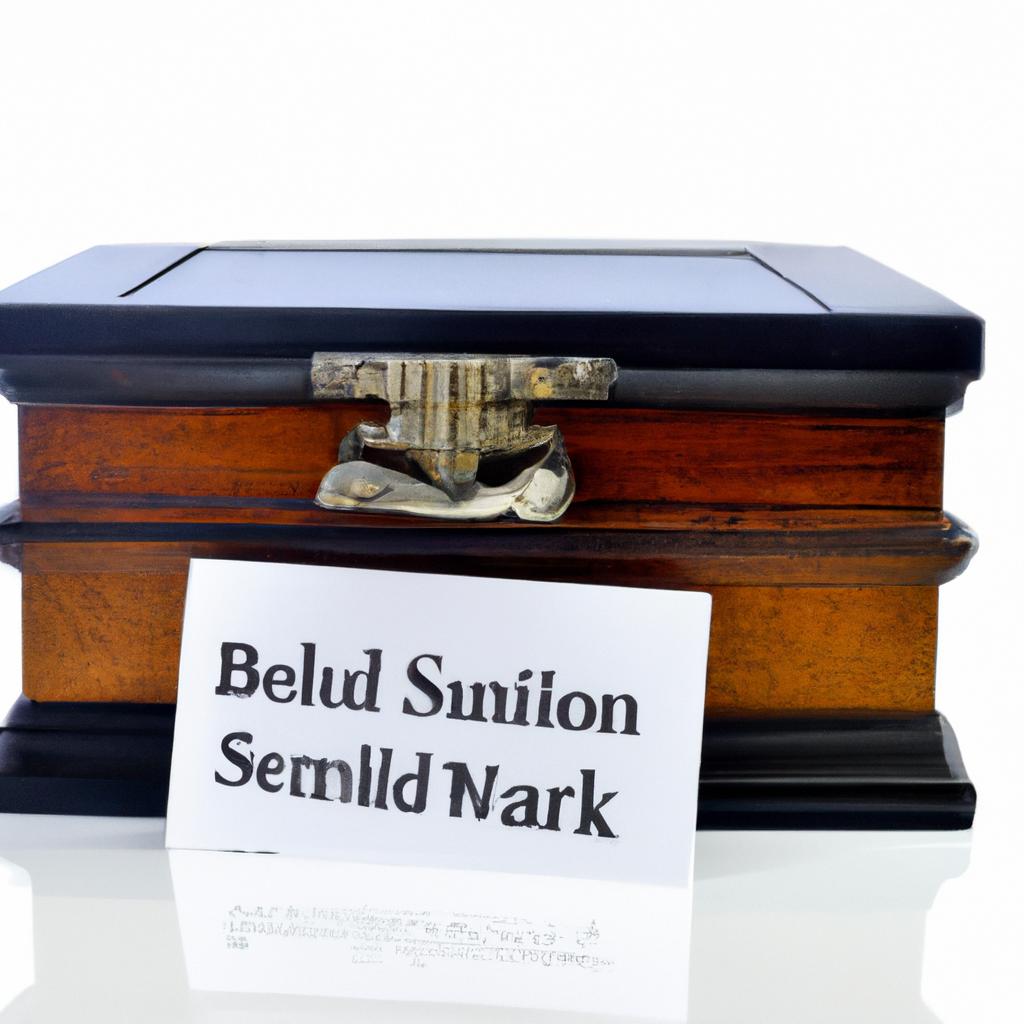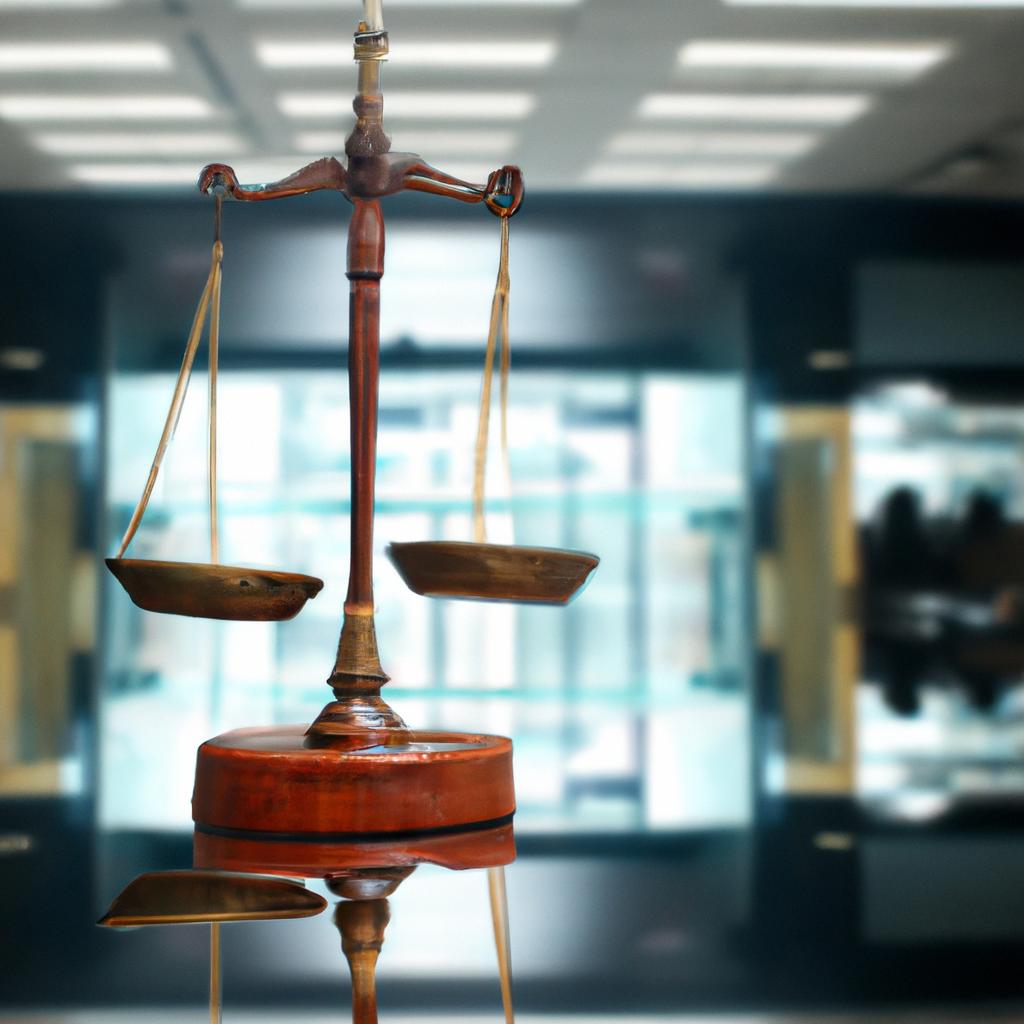In the intricate web of estate planning and wealth preservation, the role of financial institutions often sparks curiosity and concern. One burning question that arises is: do banks keep Wills? As seasoned legal practitioners in New York City, the Morgan Legal Group delves into this enigmatic issue with a keen eye for clarity and precision. Join us as we unravel the mysteries surrounding the storage of Last Wills and Testaments by financial institutions, shedding light on the implications for individuals and families navigating the complex terrain of estate administration.
Understanding the Role of Banks in Safekeeping Wills
In order to understand the role of banks in safekeeping wills, it is essential to know that banks do indeed have the capability to store important legal documents such as wills. Banks offer safe deposit boxes where individuals can securely store their wills along with other valuable items.
When utilizing a bank for the safekeeping of a will, it is important to consider the following:
- Security: Banks have high-security measures in place to protect stored documents from theft or damage.
- Accessibility: Access to the safe deposit box is typically restricted to authorized individuals, ensuring the confidentiality of the will.

Factors to Consider When Choosing a Bank to Store Your Will
When selecting a bank to store your Will, it is essential to carefully consider several factors to ensure the safety and accessibility of this critical document. One crucial element to evaluate is the bank’s reputation and track record in handling important legal documents. Look for a financial institution with a history of reliable and secure storage practices.
Additionally, consider the bank’s accessibility and convenience. Choose a bank with multiple branches or easy online access to ensure that your Will can be easily retrieved when needed. It is also important to assess the bank’s fees and any additional services they may offer, such as estate planning assistance or probate services.

The Importance of Communication with Loved Ones Regarding Will Storage
When it comes to the important matter of estate planning, one common question that often arises is whether banks keep wills. It’s crucial for individuals to communicate openly with their loved ones regarding the storage of their wills to ensure that their final wishes are carried out effectively. While banks do offer safe deposit boxes for storing important documents, including wills, there are certain factors to consider before deciding on this option.
First and foremost, it’s essential to inform your loved ones of the location of your will to avoid any confusion or delays in the future. Additionally, **banks may have specific rules and regulations** regarding the access to safe deposit boxes, which could potentially cause complications during the probate process. Therefore, it’s advisable to consult with an experienced estate planning attorney to explore all possible options for will storage and to ensure that your wishes are properly documented and safeguarded.

Recommendations for Safely Storing Your Will with a Bank
Storing your Will with a bank can be a safe and secure option to ensure that your important legal document is protected. Many people wonder, “Do banks keep Wills?” The answer is yes, many banks offer safe deposit boxes that can be used to store your Will and other valuable documents.
When considering storing your Will with a bank, it is important to follow these recommendations to ensure that your document is kept safe:
- Choose a reputable bank: Select a bank with a good reputation and a track record of secure storage facilities.
- Inform your executor: Make sure that your executor knows where your Will is stored and how to access it in case of your passing.
- Keep your Will up-to-date: Review and update your Will regularly to reflect any changes in your circumstances or wishes.
Q&A
Q: Do banks keep Wills?
A: Yes, banks may offer safe deposit box services where individuals can store important documents such as Wills.
Q: Can I leave my Will with a bank for safekeeping?
A: Yes, you can choose to store your Will in a safe deposit box at a bank for safekeeping.
Q: What are the advantages of storing a Will at a bank?
A: Storing your Will at a bank can provide added security and protection from loss or damage.
Q: Are there any risks to storing a Will at a bank?
A: While storing your Will at a bank can offer security, there may be limitations on access to the box by others in the event of your passing.
Q: How can I ensure my loved ones have access to my Will if it is kept at a bank?
A: It is important to inform your loved ones of the location of your safe deposit box and provide them with the necessary documentation to access it in case of emergency.
Q: What other options are available for storing a Will besides a bank?
A: Other options for storing a Will include keeping it in a secure location at home, entrusting it to a trusted individual, or using an online Will storage service.
Future Outlook
In conclusion, the question of whether banks keep Wills is one that many individuals may have. While some banks do offer safe deposit boxes for storage of important documents, including Wills, it is ultimately up to the individual to decide where they feel most comfortable keeping such a sensitive document. Whether you choose to entrust your Will to a bank or prefer to keep it in a secure location of your own choosing, the most important thing is to ensure that your wishes are clearly documented and easily accessible to your loved ones when the time comes. Ultimately, the decision is yours to make.
 Title: Do Banks Keep Wills? Everything You Need to Know
Title: Do Banks Keep Wills? Everything You Need to Know
As we go through life, it’s important to plan for the future. And one essential aspect of this planning is creating a will. A will is a legal document that outlines how you want your assets and possessions to be distributed after you pass away. It’s a crucial document that protects your wishes and provides a sense of security for your loved ones. But the question is, where should you keep your will? Is it safe to keep it at a bank? In this article, we’ll explore the topic of whether banks keep wills and the importance of having a secure place for your will.
Do Banks Keep Wills?
The short answer is, yes, banks do keep wills. Many people choose to store their wills in a bank’s safety deposit box for safekeeping. A safety deposit box is a secure storage space provided by banks that is accessible to their clients. It is often used to store important documents, valuables, and other important items. This makes it an ideal location for keeping a will, which is also a vital document.
Benefits of Keeping Your Will at a Bank
1. Security: One of the main reasons people choose to keep their will at a bank is because of the high level of security provided. Banks have strict security measures in place to protect the contents of the safety deposit box. This includes surveillance cameras, security guards, and other security protocols that make it difficult for unauthorized individuals to access the box.
2. Fire and water damage protection: In addition to security, banks also offer protection against fire and water damage. This can be crucial in case your home is affected by a natural disaster or accident. Keeping your will at a bank ensures that it will remain safe and protected.
3. Easy access for your loved ones: By keeping your will at a bank, you can grant access to your loved ones upon your passing. This is because safety deposit boxes have joint access, meaning multiple individuals can access the box with proper authorization. This makes it easier for your family members to access your will when they need it.
Practical Tips for Keeping your Will at a Bank
1. Inform your loved ones: It’s important to inform your loved ones that you have kept your will at a bank and provide them with the necessary information, such as the location of the bank and the box number. This will make it easier for them to access your will when the time comes.
2. Keep it up to date: As life changes, so do your assets and possessions. It’s crucial to keep your will updated regularly to ensure that it accurately reflects your wishes. If you make any changes to your will, be sure to inform your bank and update the document in the safety deposit box.
3. Store copies elsewhere: While keeping your original will at a bank is a wise decision, it’s also a good idea to keep copies of your will in a different location. This can be with a trusted family member or lawyer. This ensures that there will always be a backup copy in case of any unforeseen circumstances.
Case Study: Importance of Keeping Your Will at a Bank
John had always been diligent when it came to his finances and planning for the future. He had created a will that outlined how he wanted his assets to be distributed after his passing and kept it in a safety deposit box at his local bank. Unfortunately, he passed away suddenly, and his family was able to access the safety deposit box at the bank and retrieve his will. This provided his family with peace of mind as they were able to fulfill his wishes and distribute his assets as per his instructions.
First-hand Experience: My Parents’ Will at a Bank
My parents have kept their will at a bank for many years, and I have witnessed firsthand the benefits of this decision. When my father passed away, my mother was able to easily access the safety deposit box at the bank and retrieve their will. This saved us from the stress of searching for important documents during a difficult time. This experience has taught me the importance of keeping your will at a secure location like a bank.
In conclusion, banks do keep wills, and choosing to store your will at a bank has many benefits, such as security, fire and water damage protection, and easy access for your loved ones. Make sure to inform your family members and keep your will updated regularly. And while keeping your will at a bank is a wise decision, it’s also a good idea to keep copies in a different location. By taking these precautions, you can ensure that your will is safe and secure, and your wishes will be fulfilled when the time comes.












